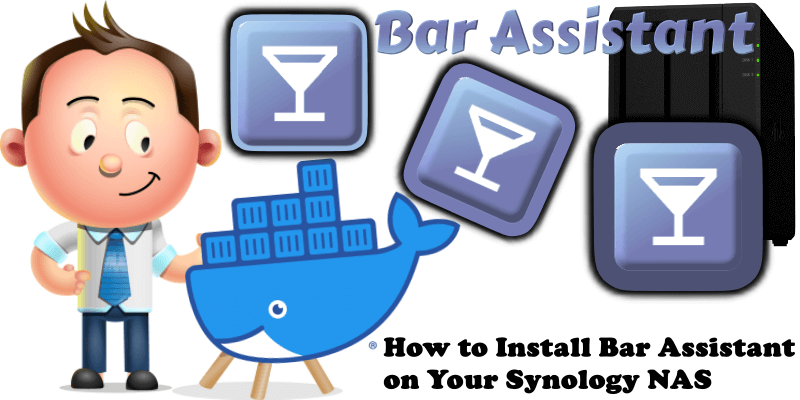
Bar Assistant is a self hosted application for managing your home bar. It allows you to search and filter cocktails, add ingredients and create custom cocktail recipes. In this step by step guide I will show you how to install Bar Assistant on your Synology NAS using Docker & Portainer.
STEP 1
Please Support My work by Making a Donation.
STEP 2
Install Portainer using my step by step guide. If you already have Portainer installed on your Synology NAS, skip this STEP. Attention: Make sure you have installed the latest Portainer version.
STEP 3
Make sure you have a synology.me Wildcard Certificate. Follow my guide to get a Wildcard Certificate. If you already have a synology.me Wildcard certificate, skip this STEP.
STEP 4
Go to Control Panel / Login Portal / Advanced Tab / click Reverse Proxy. Follow the instructions in the image below.
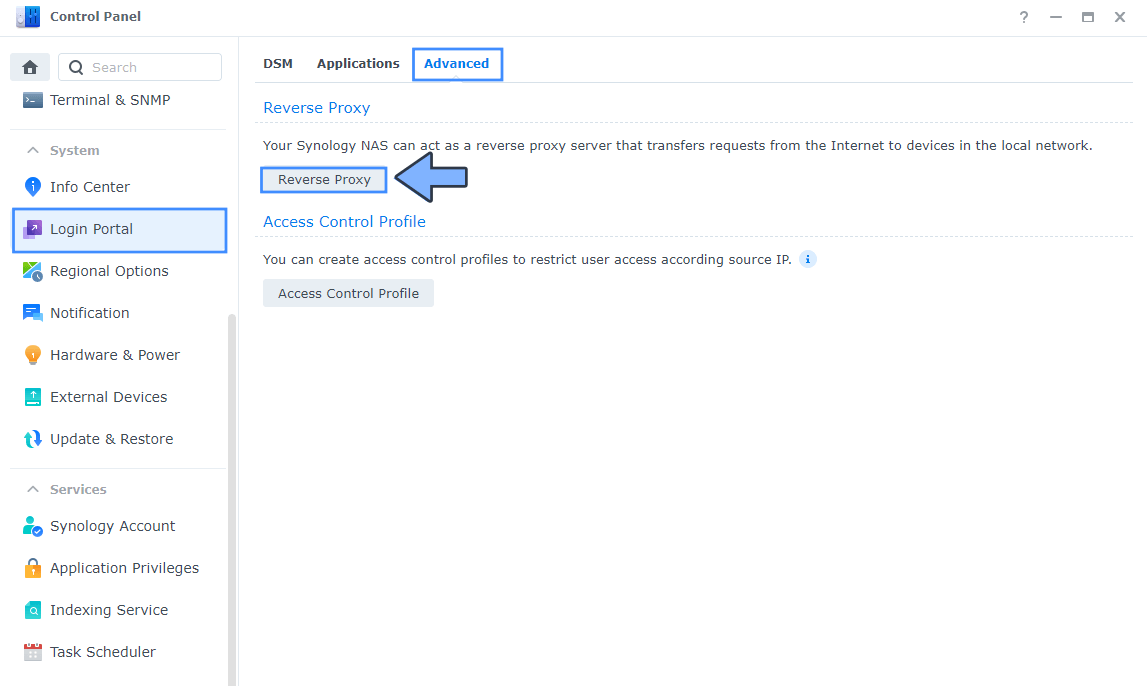
STEP 5
Now click the “Create” button. Follow the instructions in the image below.

STEP 6
After you click the Create button, the window below will open. Follow the instructions in the image below.
On the General area, set the Reverse Proxy Name description: type in Bar Assistant. After that, add the following instructions:
Source:
Protocol: HTTPS
Hostname: bar.yourname.synology.me
Port: 443
Check Enable HSTS
Destination:
Protocol: HTTP
Hostname: localhost
Port: 4200
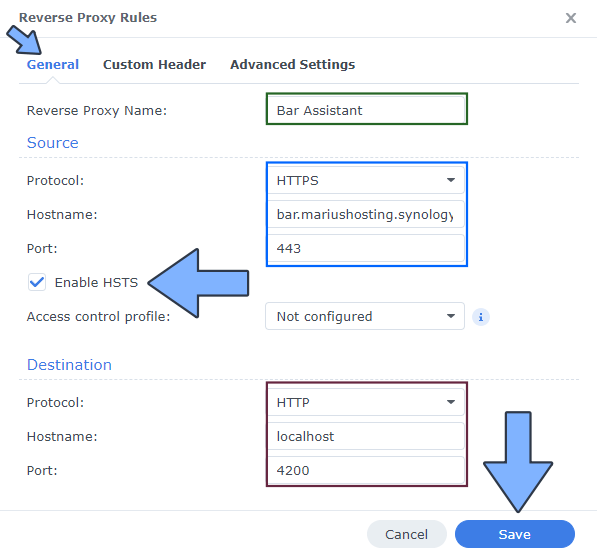
STEP 7
On the Reverse Proxy Rules click the Custom Header tab. Click Create and then, from the drop-down menu, click WebSocket. After you click on WebSocket, two Header Names and two Values will be automatically added. Click Save. Follow the instructions in the image below.

STEP 8
Go to Control Panel / Network / Connectivity tab/ Check Enable HTTP/2 then click Apply. Follow the instructions in the image below.
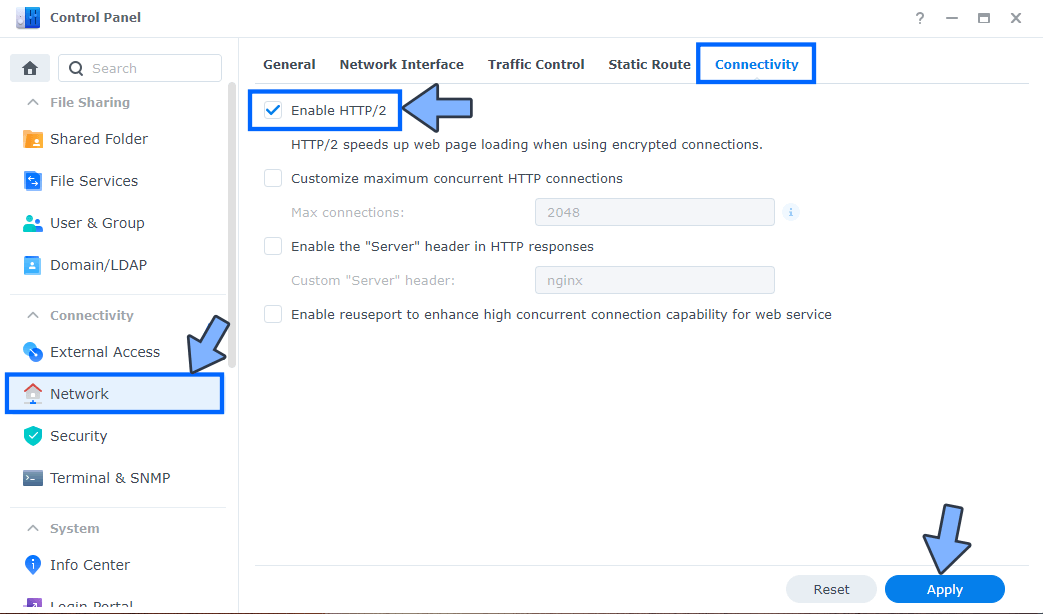
STEP 9
Go to Control Panel / Security / Advanced tab/ Check Enable HTTP Compression then click Apply. Follow the instructions in the image below.
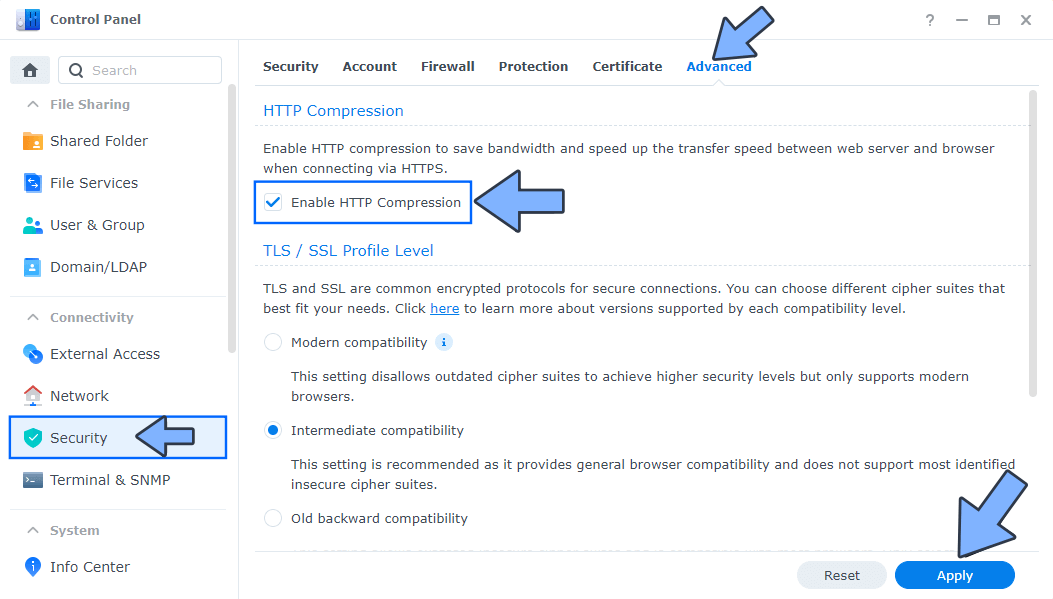
STEP 10
Go to File Station and open the docker folder. Inside the docker folder, create one new folder and name it barassistant. Follow the instructions in the image below.
Note: Be careful to enter only lowercase, not uppercase letters.
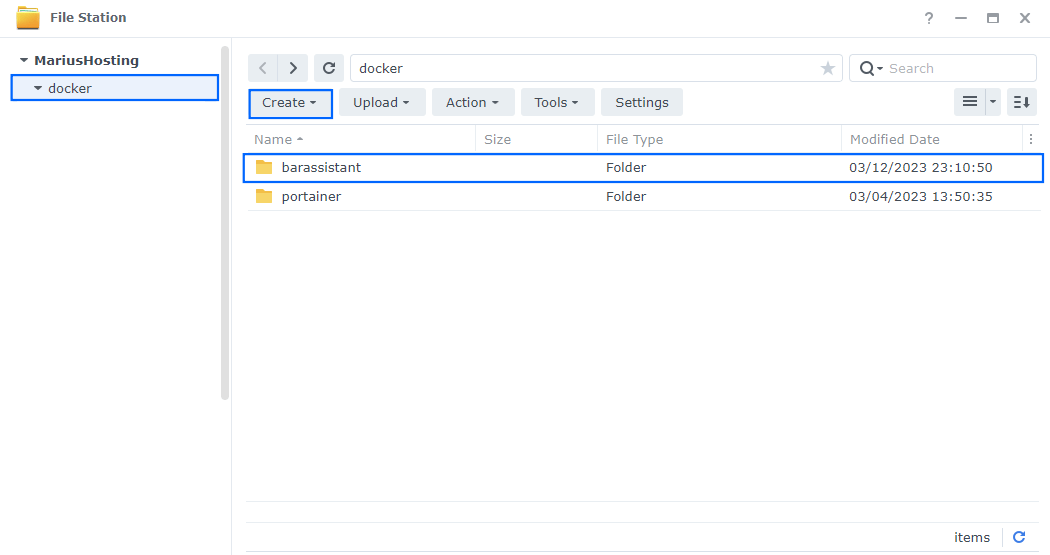
STEP 11
Now create three new folders inside the barassistant folder that you created at STEP 10 and name them bar-data, meilisearch, redis. Follow the instructions in the image below.
Note: Be careful to enter only lowercase, not uppercase letters.
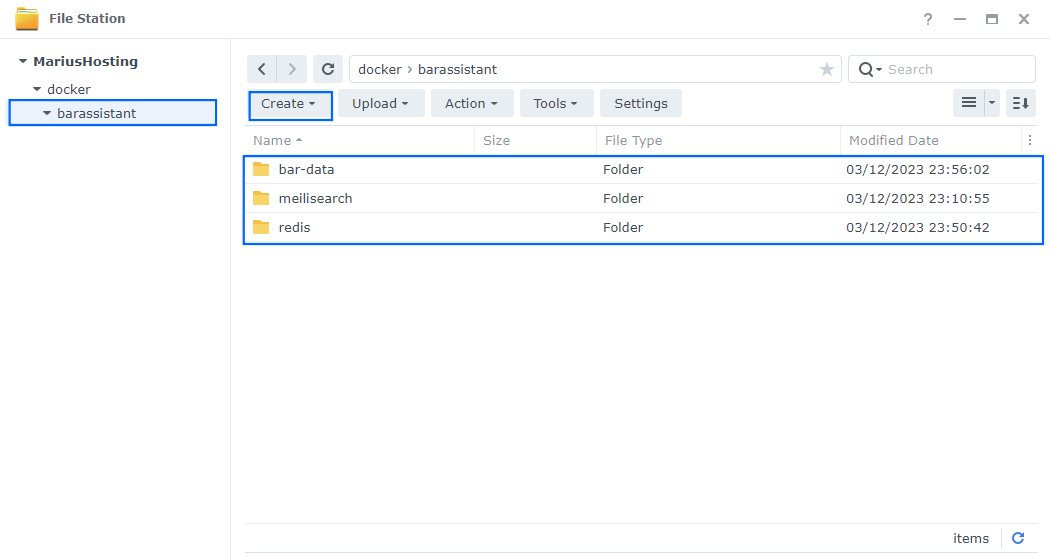
STEP 12
Download the nginx.conf file by clicking the blue link below, then upload it in the barassistant folder that you have previously created at STEP 10. Follow the instructions in the image below. 🔒Note: Support my work to unlock the password. You can use this password to download any file on mariushosting forever!

STEP 13
Right click on the barassistant folder that you have previously created at STEP 10 then click Properties. Follow the instructions in the image below.
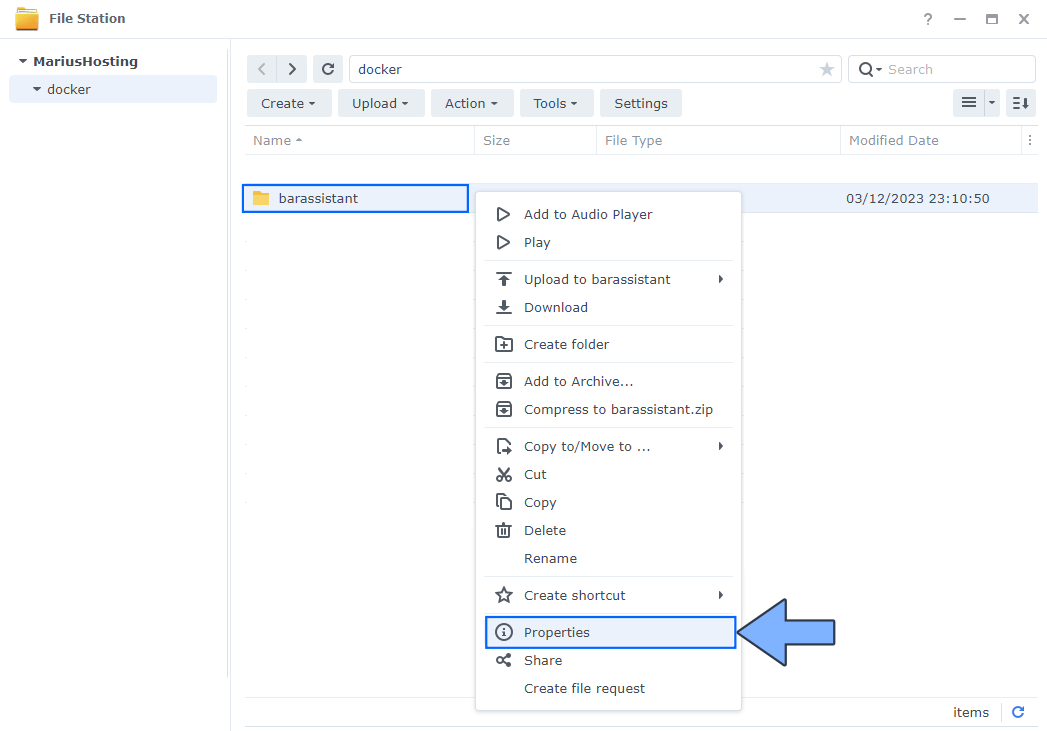
STEP 14
Go to the Permission tab, then click Advanced options. From the drop-down menu, choose “Make inherited permissions explicit“. Follow the instructions in the image below.

STEP 15
Select Everyone then click the Edit tab. Follow the instructions in the image below.
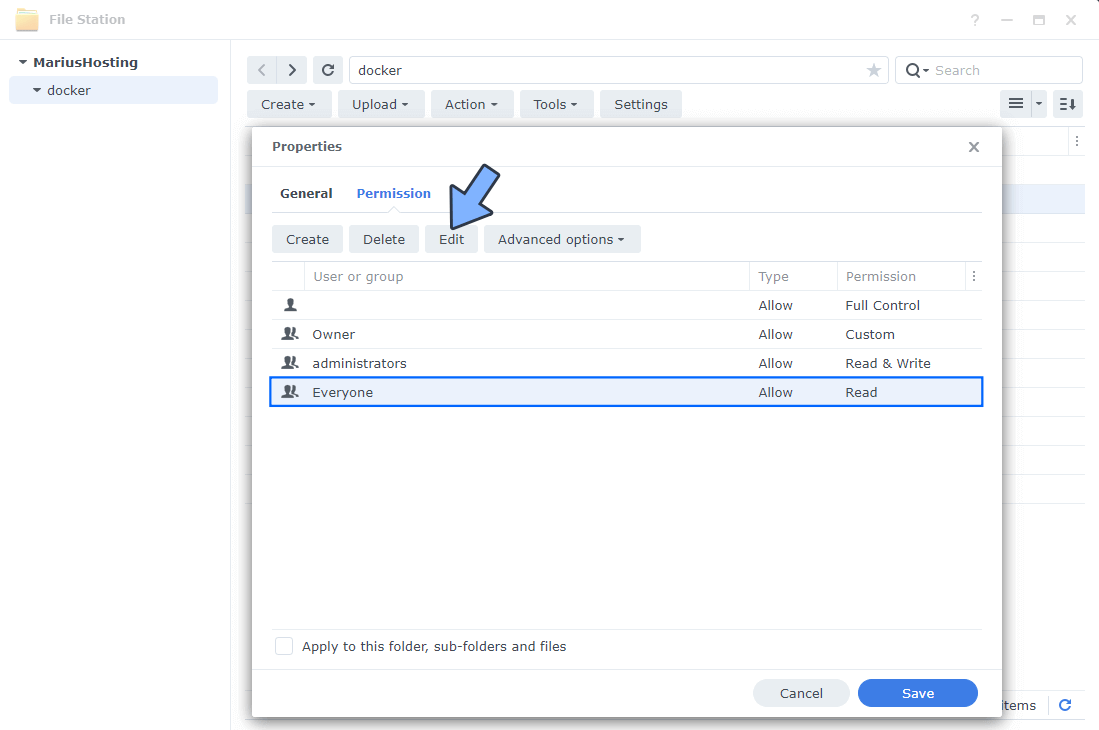
STEP 16
Check all Read and Write Permissions. Click Done. Follow the instructions in the image below.
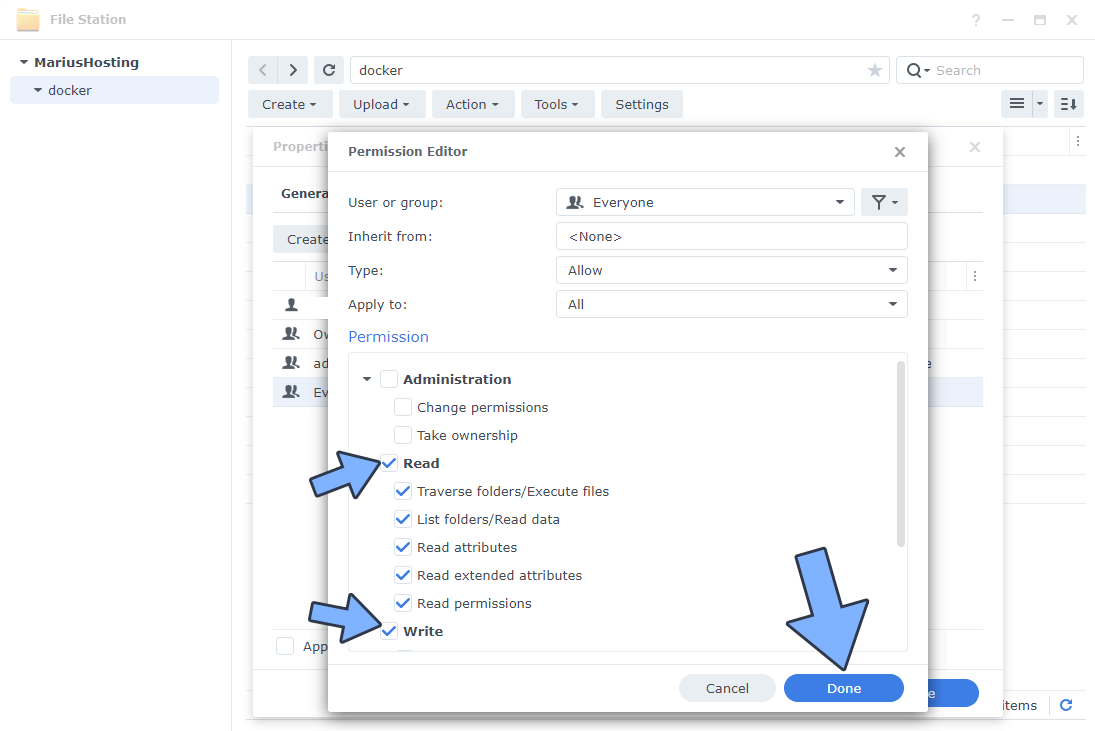
STEP 17
After you click Done on STEP 16, check “Apply to this folder, sub-folders and files“. Click Save. Follow the instructions in the image below.
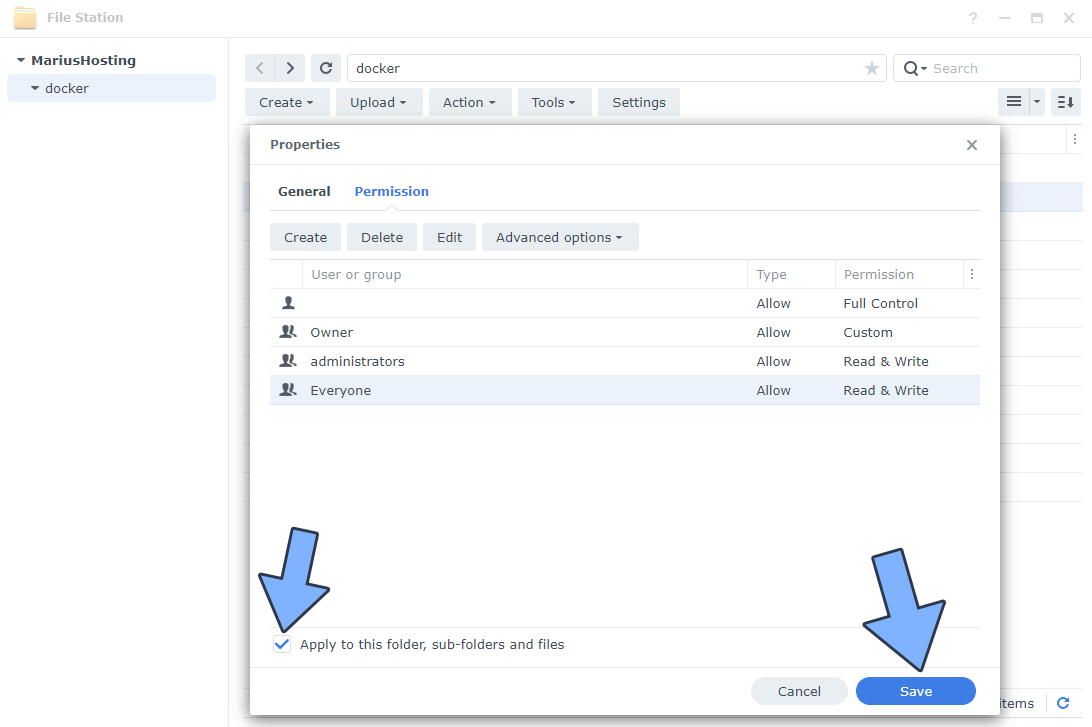
STEP 18
Log into Portainer using your username and password. On the left sidebar in Portainer, click on Home then Live connect. Follow the instructions in the image below.

On the left sidebar in Portainer, click on Stacks then + Add stack. Follow the instructions in the image below.

STEP 19
In the Name field type in barassistant. Follow the instructions in the image below.
services:
redis:
image: redis:7
container_name: Bar-Assistant-REDIS
hostname: barassistant-redis
security_opt:
- no-new-privileges:true
read_only: false
user: 1026:100
healthcheck:
test: ["CMD-SHELL", "redis-cli ping || exit 1"]
volumes:
- /volume1/docker/barassistant/redis:/data:rw
environment:
TZ: Europe/Bucharest
ALLOW_EMPTY_PASSWORD: yes
restart: on-failure:5
meilisearch:
image: getmeili/meilisearch:latest
container_name: Bar-Assistant-SEARCH
hostname: barassistant-search
security_opt:
- no-new-privileges:true
healthcheck:
test: wget --no-verbose --tries=1 --spider http://localhost:7700
volumes:
- /volume1/docker/barassistant/meilisearch:/meili_data:rw
environment:
MEILI_MASTER_KEY: LxgEN9GPU2xhjtJseX2d5j7DP49Uv4Bg
MEILI_ENV: production
restart: on-failure:5
bar-assistant:
image: barassistant/server:v5
container_name: Bar-Assistant
hostname: barassistant
security_opt:
- no-new-privileges:true
volumes:
- /volume1/docker/barassistant/bar-data:/var/www/cocktails/storage/bar-assistant:rw
environment:
APP_URL: https://bar.yourname.synology.me/bar
ALLOW_REGISTRATION: true
LOG_CHANNEL: stderr
MEILISEARCH_KEY: LxgEN9GPU2xhjtJseX2d5j7DP49Uv4Bg
MEILISEARCH_HOST: http://barassistant-search:7700
REDIS_HOST: barassistant-redis
CACHE_DRIVER: redis
SESSION_DRIVER: redis
restart: on-failure:5
depends_on:
meilisearch:
condition: service_healthy
redis:
condition: service_healthy
salt-rim:
image: barassistant/salt-rim:v4
container_name: Bar-Assistant-SALT-RIM
hostname: barassistant-salt-rim
security_opt:
- no-new-privileges:true
healthcheck:
test: curl -f http://localhost:8080/ || exit 1
environment:
API_URL: https://bar.yourname.synology.me/bar
MEILISEARCH_URL: https://bar.yourname.synology.me/search
restart: on-failure:5
depends_on:
bar-assistant:
condition: service_started
webserver:
image: nginx:alpine
container_name: Bar-Assistant-WEB
hostname: barassistant-web
security_opt:
- no-new-privileges:true
healthcheck:
test: wget --no-verbose --tries=1 --spider http://localhost:3000
ports:
- 4200:3000
volumes:
- /volume1/docker/barassistant/nginx.conf:/etc/nginx/conf.d/default.conf:ro
restart: on-failure:5
depends_on:
salt-rim:
condition: service_healthy
Note: Before you paste the code above in the Web editor area below, change the value numbers for user with your own UID and GID values. (Follow my step by step guide on how to do this.) 1026 is my personal UID value and 100 is my personal GID value. You have to type in your own values.
Note: Before you paste the code above in the Web editor area below, change the value for TZ. (Select your current Time Zone from this list.)
Note: Before you paste the code above in the Web editor area below, change the value for APP_URL and API_URL and type in your own synology.me DDNS with https:// at the beginning that you have previously created at STEP 6 and /bar at the end.
Note: Before you paste the code above in the Web editor area below, change the value for MEILISEARCH_URL and type in your own synology.me DDNS with https:// at the beginning that you have previously created at STEP 6 and /search at the end.
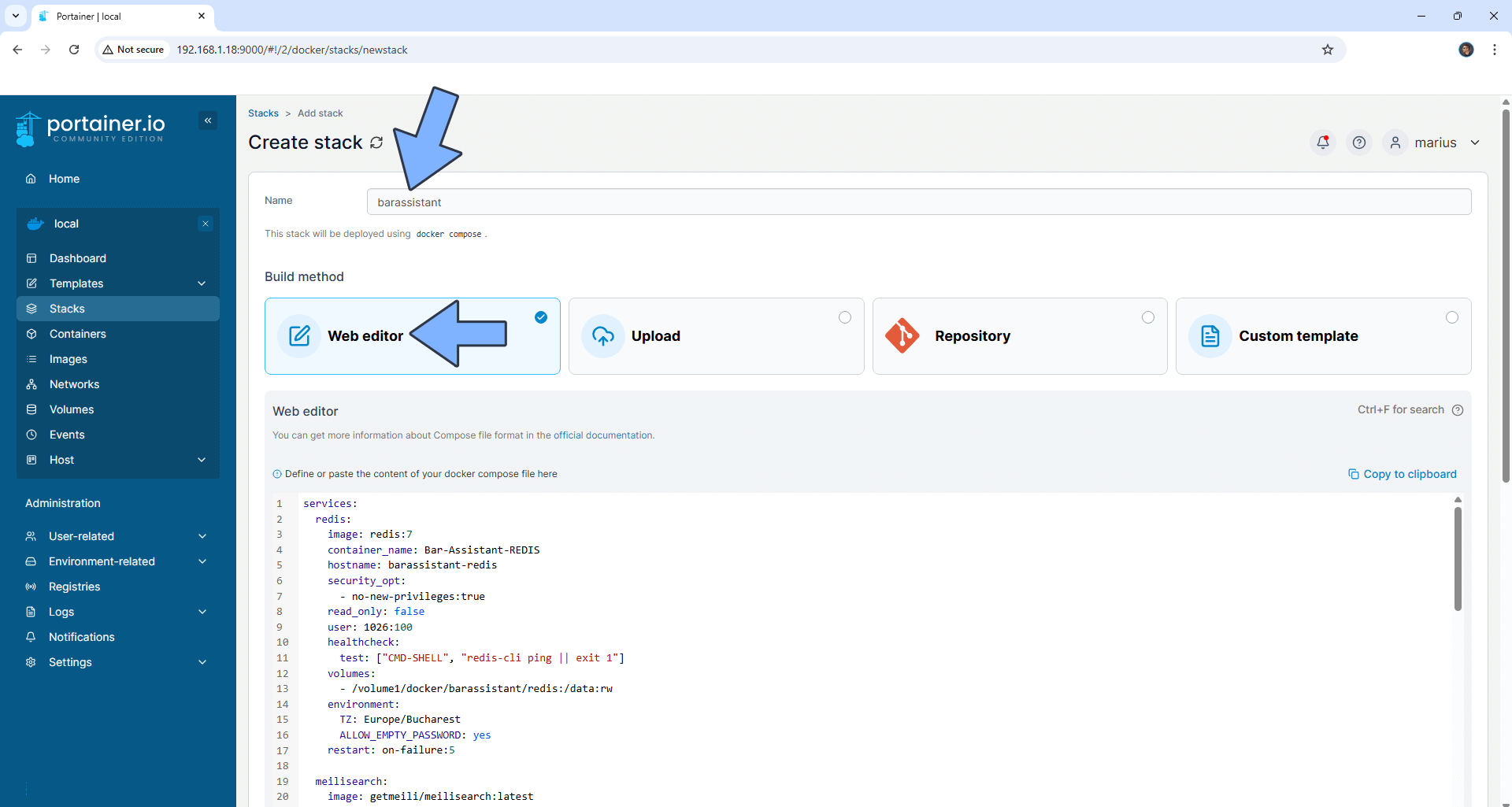
STEP 20
Scroll down on the page until you see a button named Deploy the stack. Click on it. Follow the instructions in the image below. The installation process can take up to a few minutes. It will depend on your Internet speed connection.
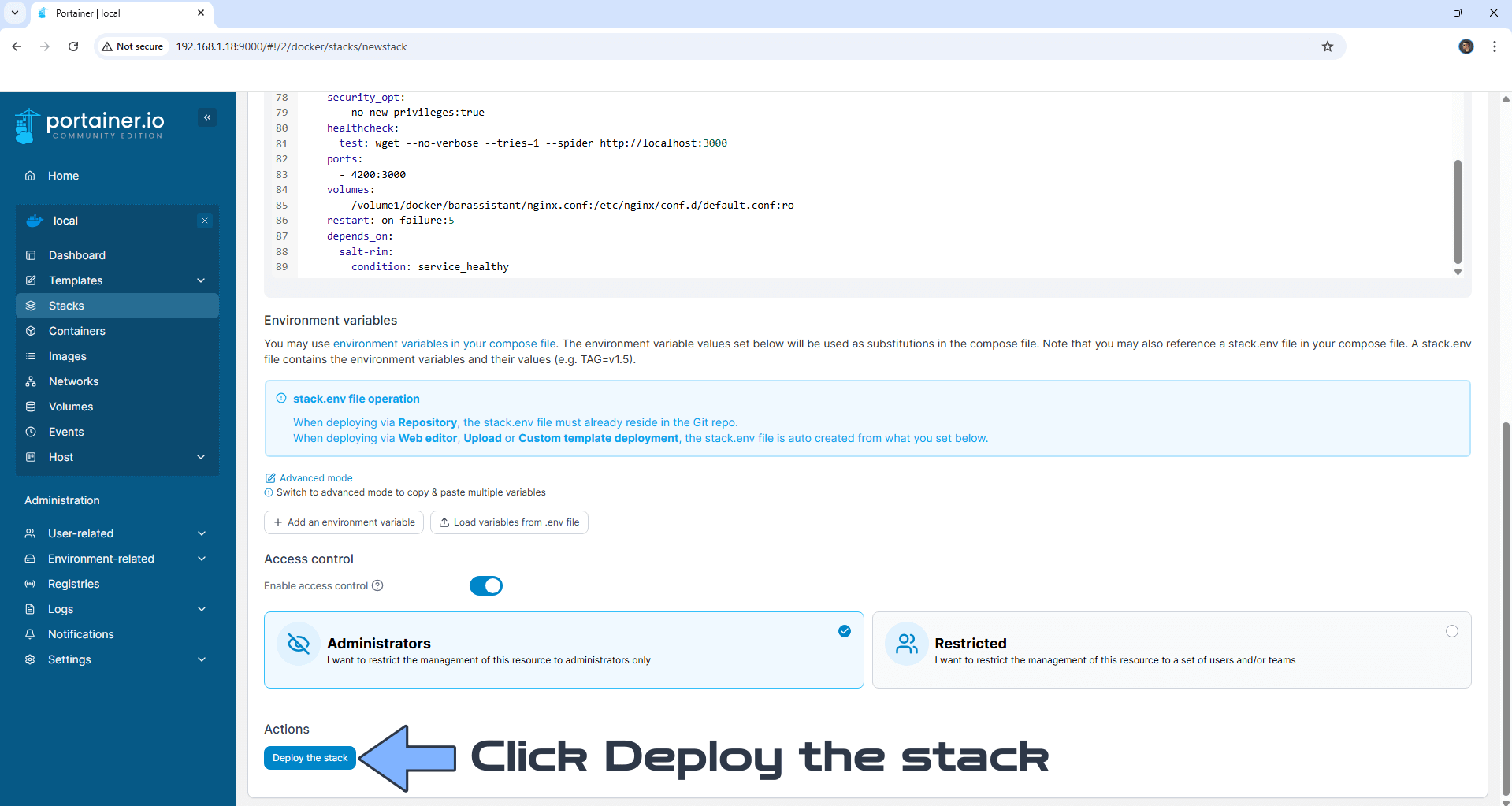
STEP 21
If everything goes right, you will see the following message at the top right of your screen: “Success Stack successfully deployed“.

STEP 22
🟢Please Support My work by Making a Donation. Almost 99,9% of the people that install something using my guides forget to support my work, or just ignore STEP 1. I’ve been very honest about this aspect of my work since the beginning: I don’t run any ADS, I don’t require subscriptions, paid or otherwise, I don’t collect IPs, emails, and I don’t have any referral links from Amazon or other merchants. I also don’t have any POP-UPs or COOKIES. I have repeatedly been told over the years how much I have contributed to the community. It’s something I love doing and have been honest about my passion since the beginning. But I also Need The Community to Support me Back to be able to continue doing this work.
STEP 23
Now open your browser and type in your HTTPS/SSL certificate like this https://bar.yourname.synology.me In my case it’s https://bar.mariushosting.synology.me If everything goes right, you will see the Bar Assistant login page. Click Register. Follow the instructions in the image below.
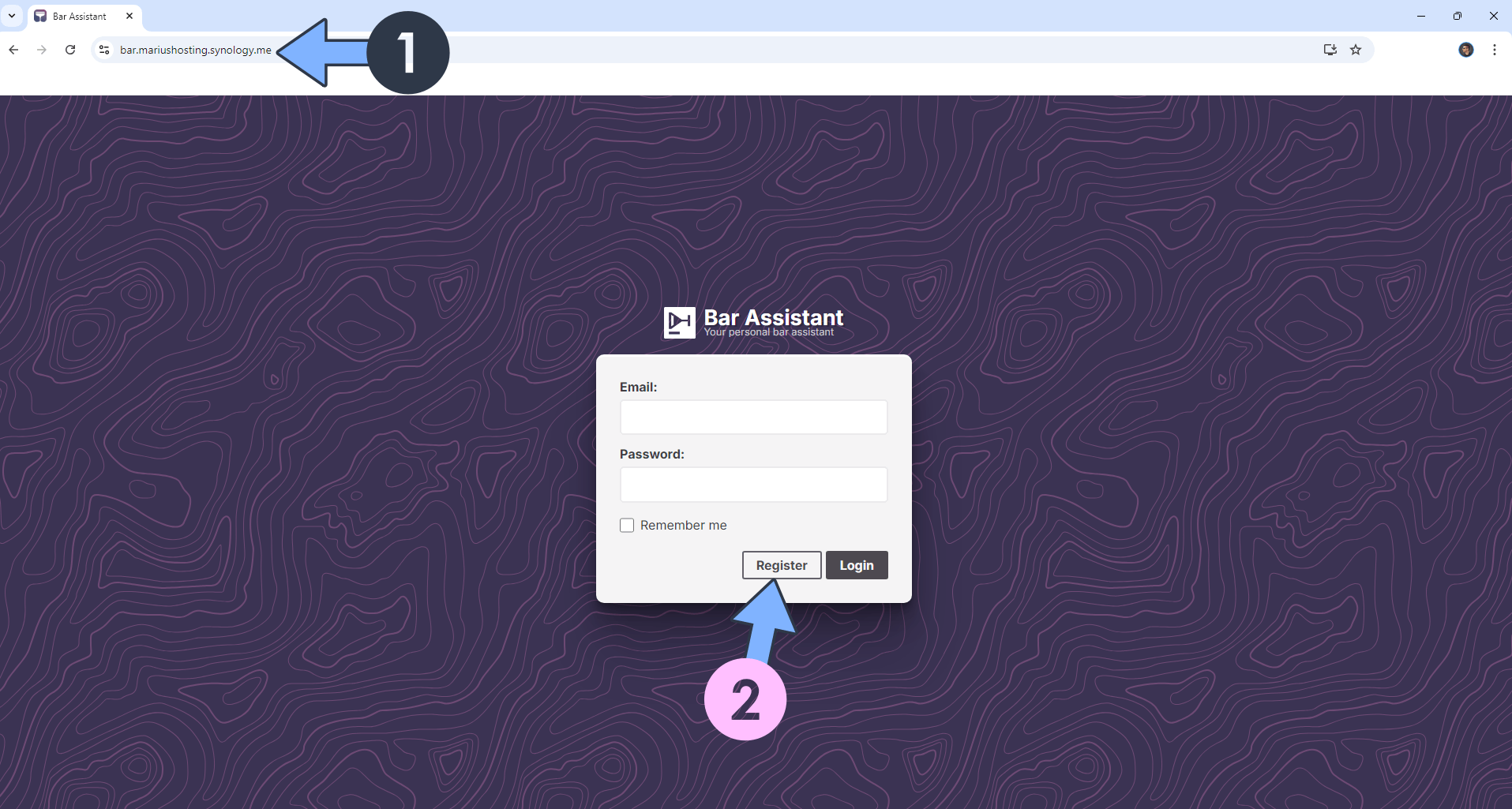
STEP 24
Type in your own details, then click Register. Follow the instructions in the image below.
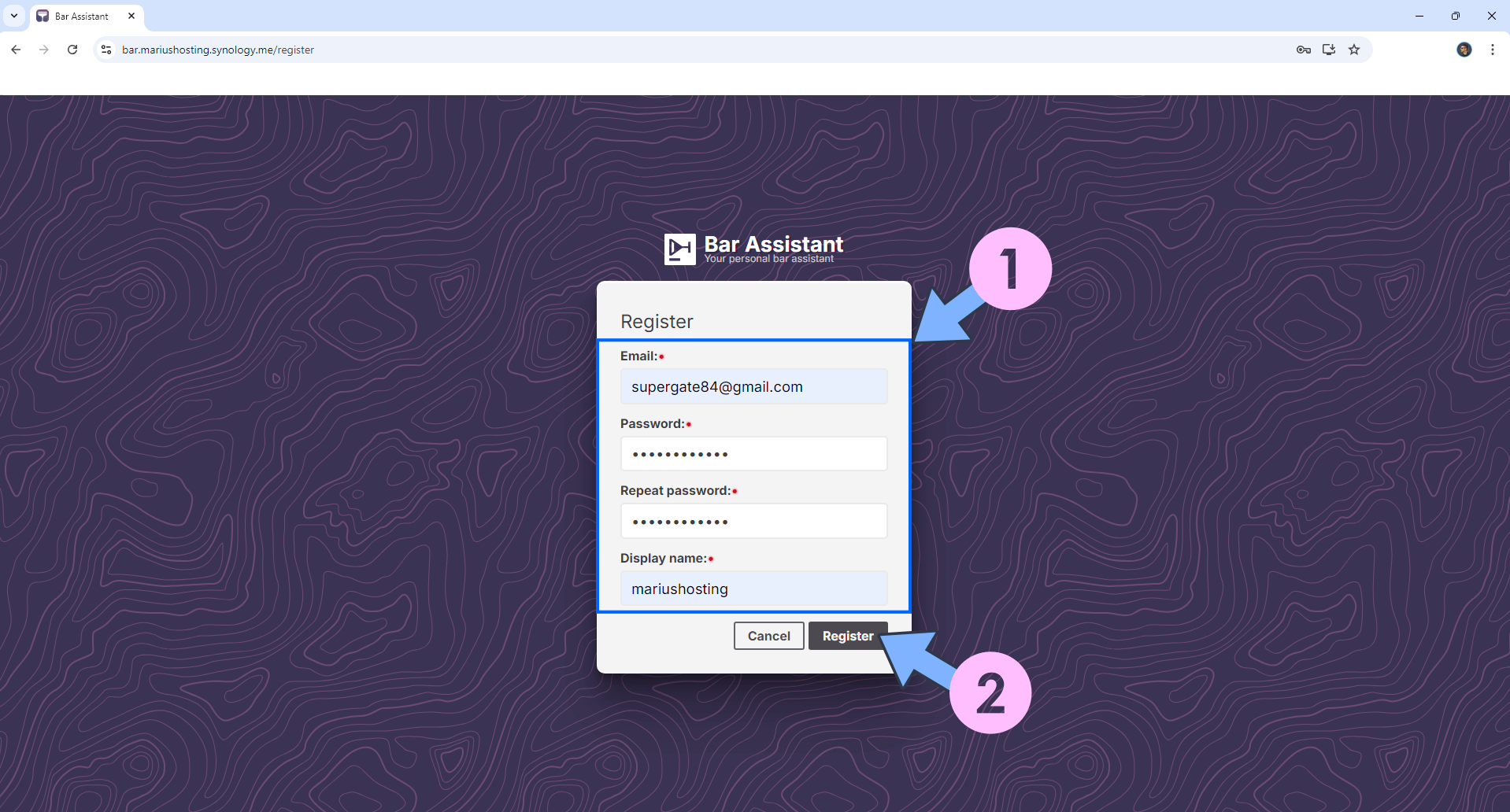
STEP 25
Type in your own Email Address and Password that you have previously created at STEP 24. Click Login. Follow the instructions in the image below.
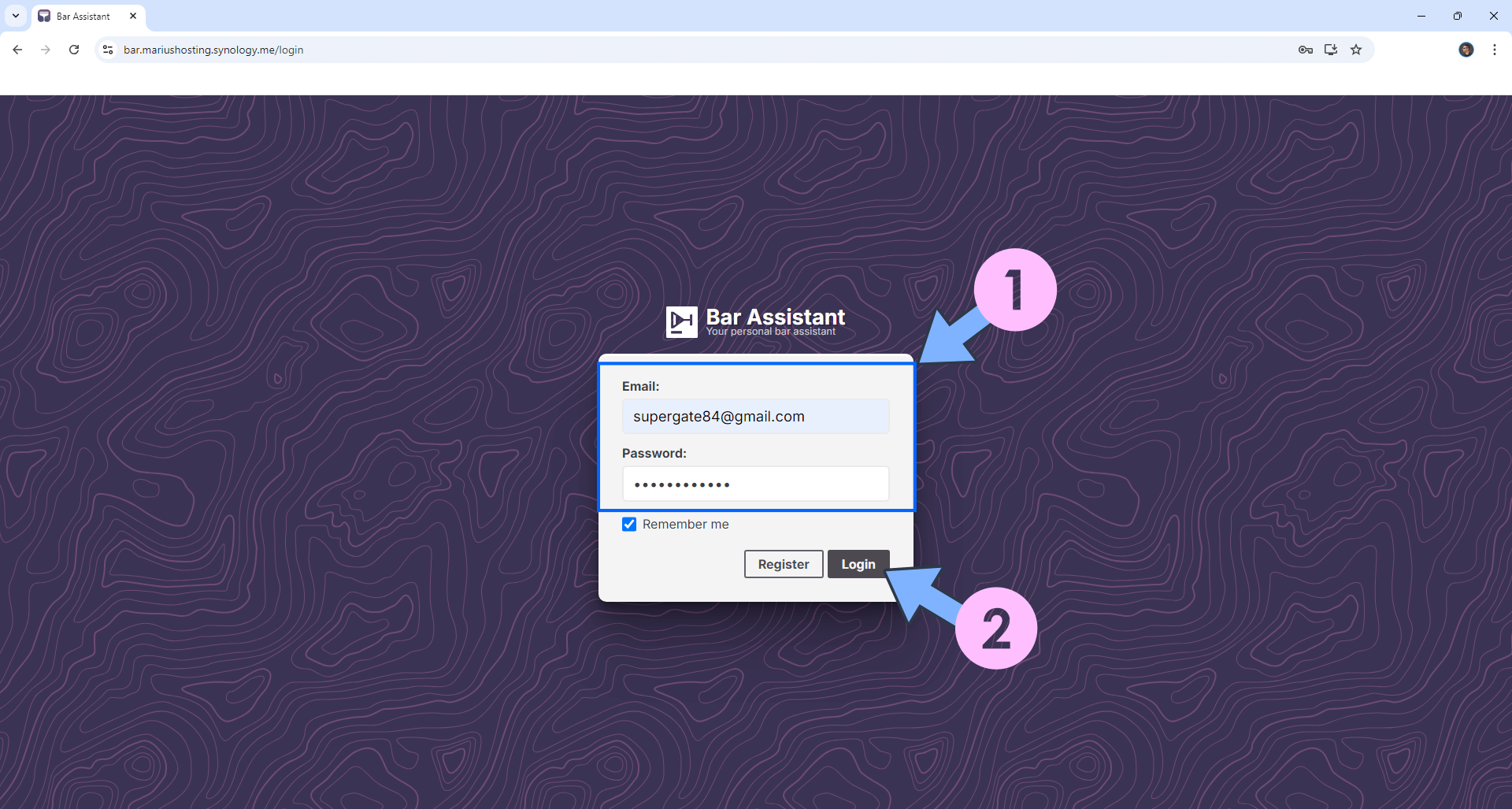
STEP 26
At the top right of the page, click Create bar. Follow the instructions in the image below.
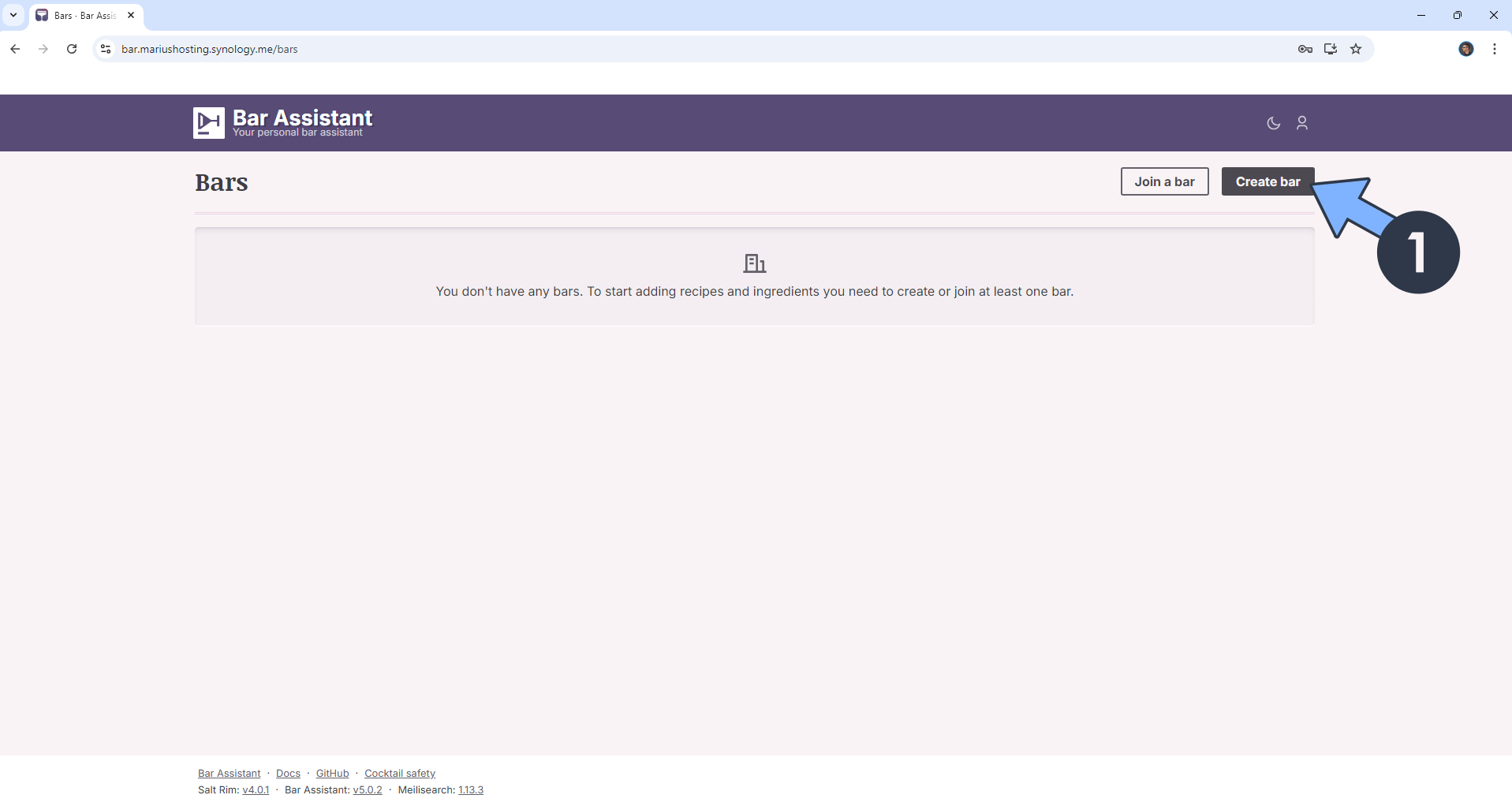
STEP 27
Type in your own Bar Details, then click Save. Follow the instructions in the image below.
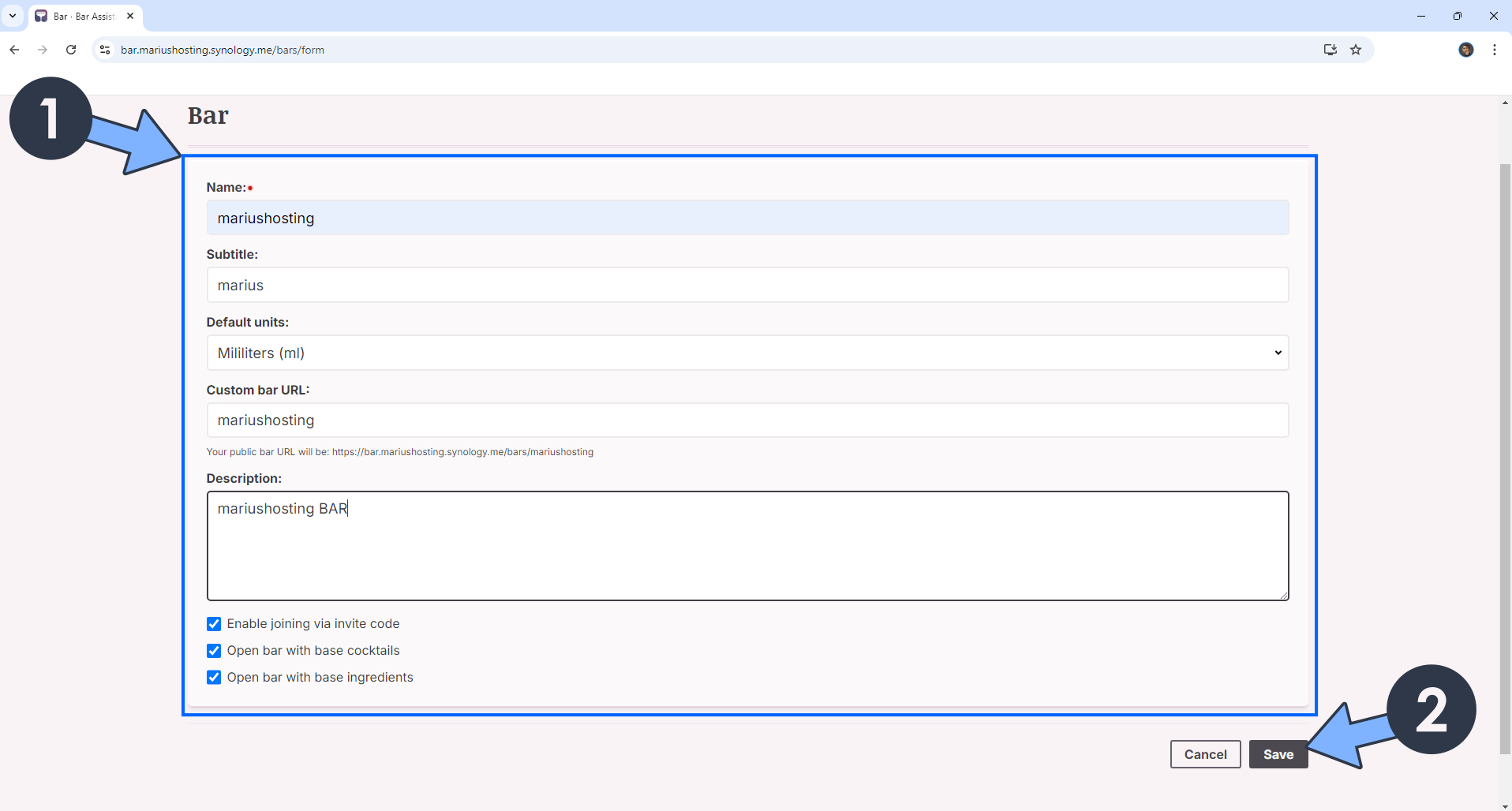
STEP 28
Click Select bar. Follow the instructions in the image below.
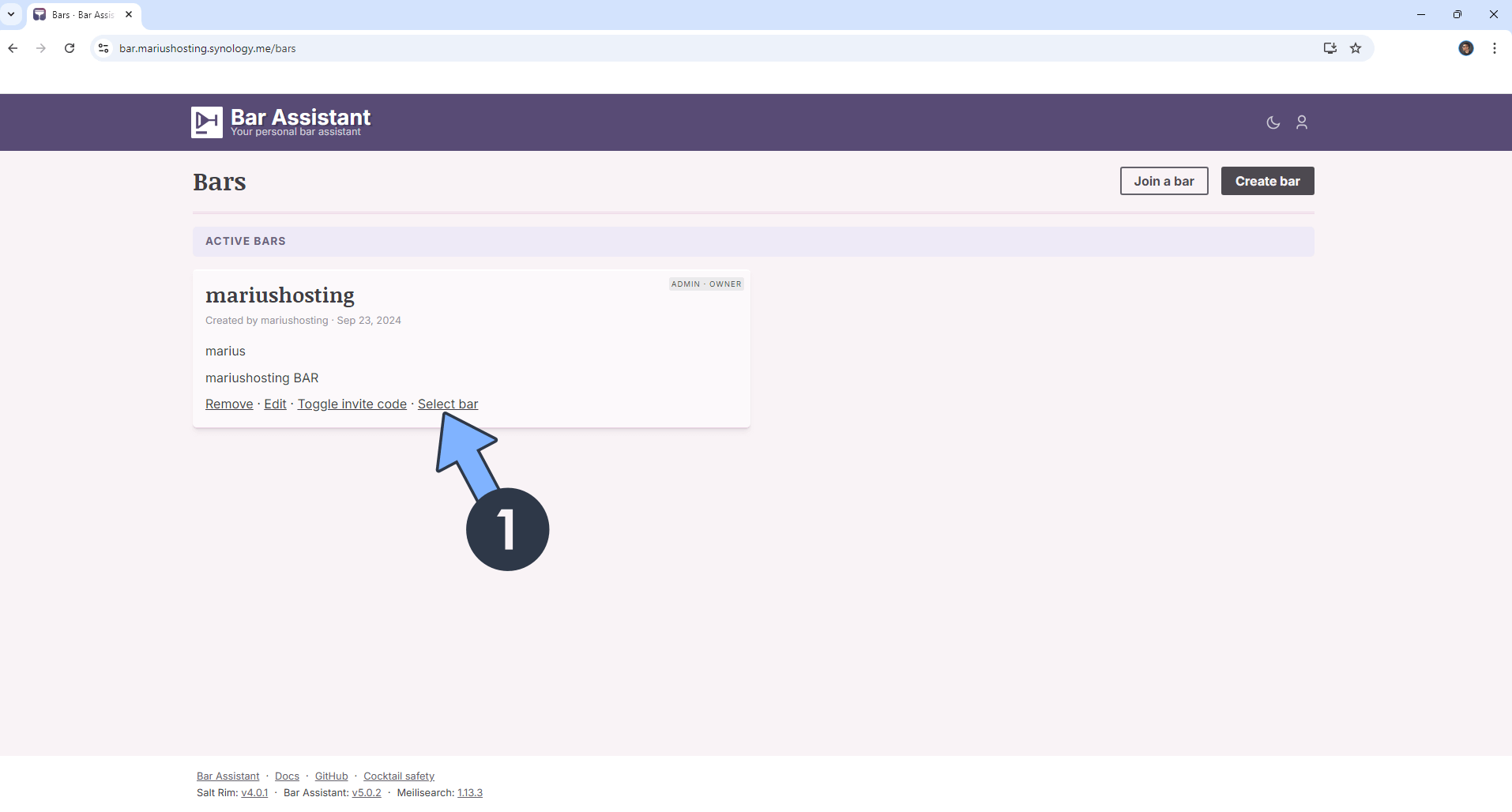
STEP 29
You can easily switch the theme to Dark. Follow the instructions in the image below.
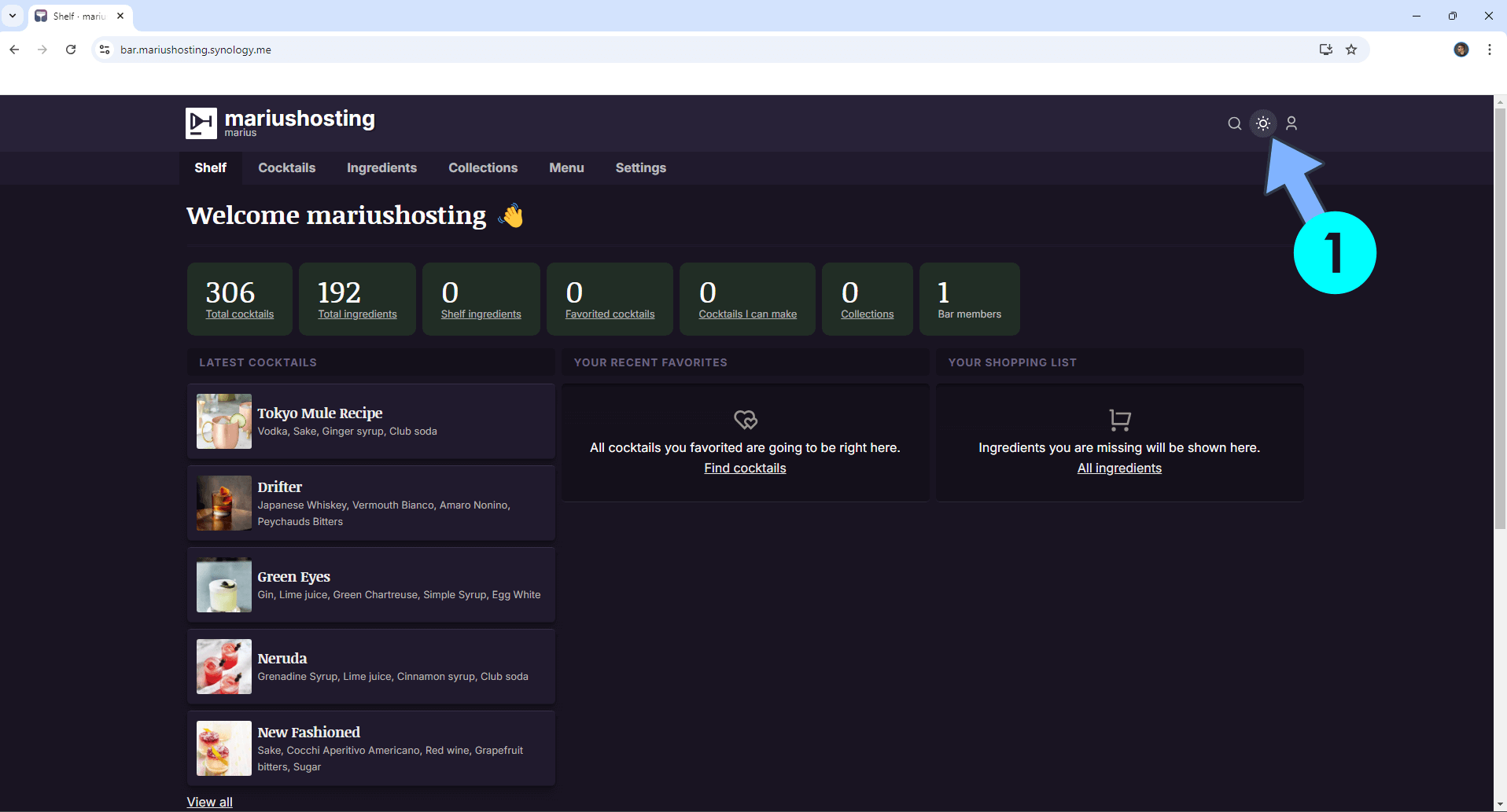
STEP 30
Search for your favorite Cocktails. Follow the instructions in the image below.
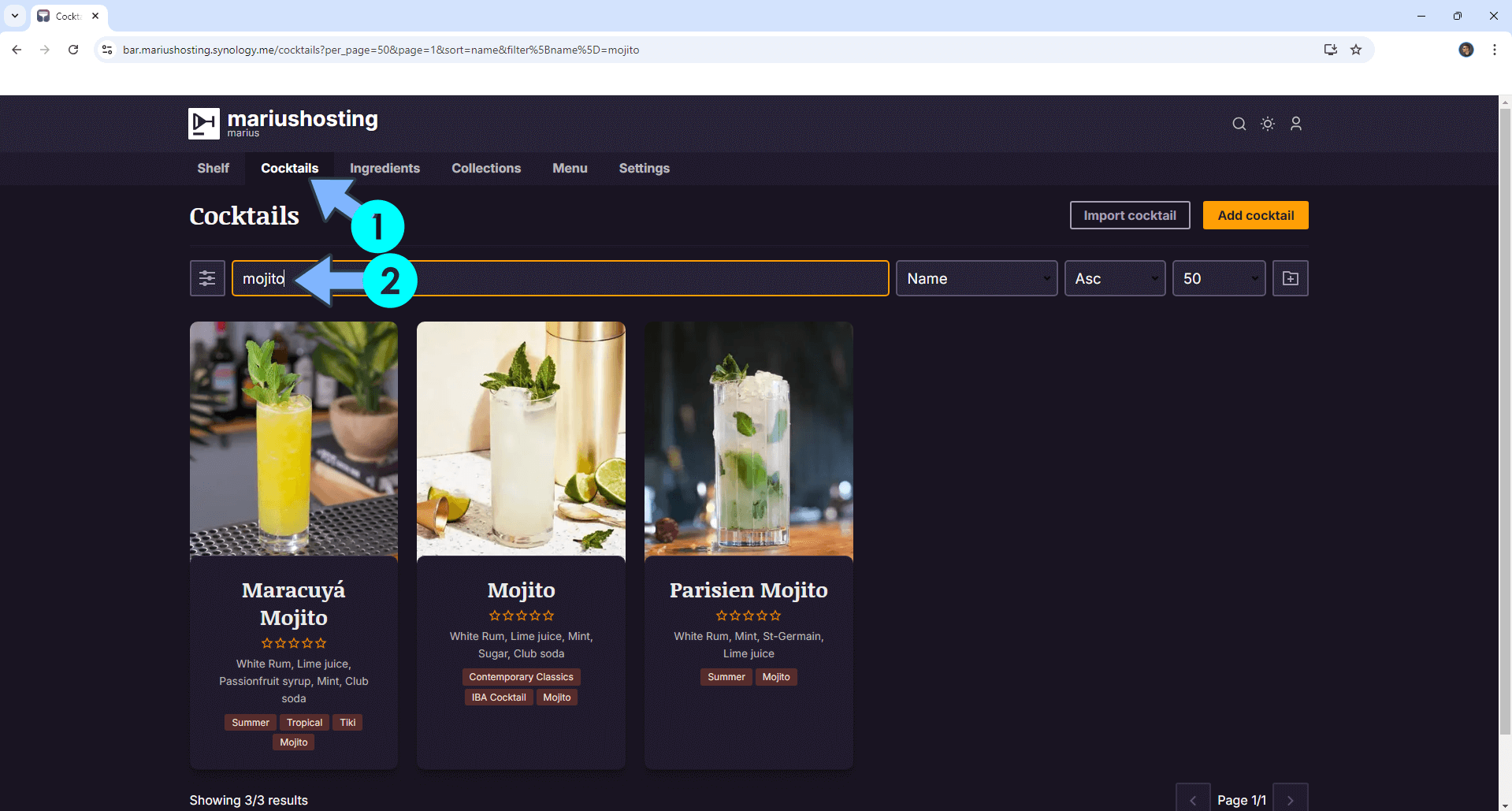
STEP 31
If you want to disable user registration in Bar Assistant after registering the first user, just change the following line in the compose at STEP 19:
ALLOW_REGISTRATION: truewith the following one:
ALLOW_REGISTRATION: falseClick update the stack to update the settings. From this point on, any user that will try to register a new account in Bar Assistant will be rejected.
Enjoy Bar Assistant!
If you encounter issues by using this container, make sure to check out the Common Docker issues article.
Note: Can I run Docker on my Synology NAS? See the supported models.
Note: How to Back Up Docker Containers on your Synology NAS.
Note: Find out how to update the Bar Assistant container with the latest image.
Note: How to Free Disk Space on Your NAS if You Run Docker.
Note: How to Schedule Start & Stop For Docker Containers.
Note: How to Activate Email Notifications.
Note: How to Add Access Control Profile on Your NAS.
Note: How to Change Docker Containers Restart Policy.
Note: How to Use Docker Containers With VPN.
Note: Convert Docker Run Into Docker Compose.
Note: How to Clean Docker.
Note: How to Clean Docker Automatically.
Note: Best Practices When Using Docker and DDNS.
Note: Some Docker Containers Need WebSocket.
Note: Find out the Best NAS Models For Docker.
Note: Activate Gmail SMTP For Docker Containers.
This post was updated on Wednesday / February 11th, 2026 at 10:13 AM
